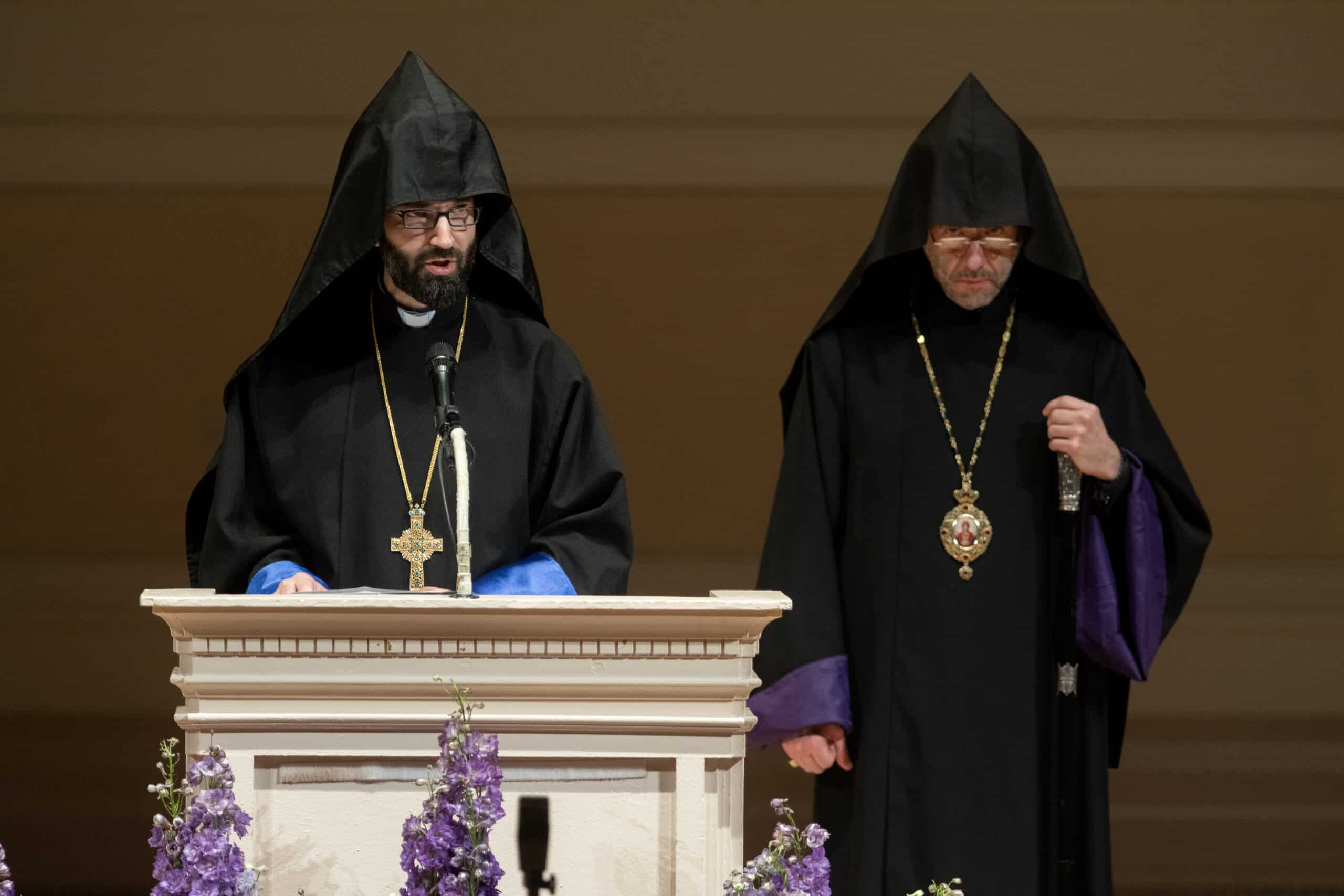ARCHBISHOP ANOUSHAVAN PAYS TRIBUTE TO VARTAN GREGORIAN

A special tribute to Vartan Gregorian, president of Carnegie Corporation from 1997 to 2021, was held on Wednesday, April 13, at Carnegie Hall in New York, on the first anniversary of his death. Archpriest Fr. Sahag Yemishian represented His Eminence Archbishop Anoushavan, Prelate, at the homage and delivered remarks prepared by the Prelate celebrating the extraordinary life of Dr. Gregorian. You may read the full text below.
***
I am honored to evoke Mr. Grigorian, a truly larger than life figure that touched the lives of so many of us before leaving us a year ago.
He was the quintessential global citizen. Not only did that serve him well in his long and eventful life. More importantly, this gave him a unique ability to understand others regardless of background or social condition.
That quality may be explained by his own biography. Born an Armenian in Tabriz, he inherited the rich culture and traditions that came with the storied Armenian community in Iran, arguably the oldest in the world. That legacy, too, in a part of the world where so many civilizations intersect—not always peacefully, as we tragically know—also made him a polyglot. By my own count, he spoke at least seven languages.
Let me note here that it was in Beirut, a city that is very dear to me, that Vartan—please allow me to call him by his first name—learned his first two Western languages: English and French. This, especially English, would be key for unlocking the potentiality the future held for him.
This was a gift for him but, as it happens, also for America. He is remembered by his turnaround of Brown University and the New York Public Library. I do not need to speak at length here about the leadership and vision he provided as the president of the Carnegie Corporation.
It was at this great corporation, as well as the Aurora Foundation, that he brought out yet again his extraordinary capacity for finding solutions to global crises. Perhaps his education as a historian honed this innate skill.
Not for nothing, in a speech he gave on occasion of Stanford’s centennial, he said: “At Stanford I learned a fundamental lesson: that we cannot and must not lose our sense of history and our memory for they constitute our identity.”
Indeed, as an Armenian, he was keenly aware of history and how we need to understand it to shape the future. He devoted all his efforts and resources to addressing the many challenges that the Armenian nation still faces, and yet—not least because of persons like Mr. Gregorian—somehow manages to overcome against impossible odds.
And it was as an Armenian immigrant, whose roots went back to the land that hosted Noah’s Ark, that he said:
“Like many other immigrant forefathers of ours, we have come not only to enjoy the benefits of America but to contribute to its development, to its growth and to its welfare. We have come to contribute to the achievement of what is left undone or unfinished in the agenda of American democracy. We have come to contribute to that perfect union.”
